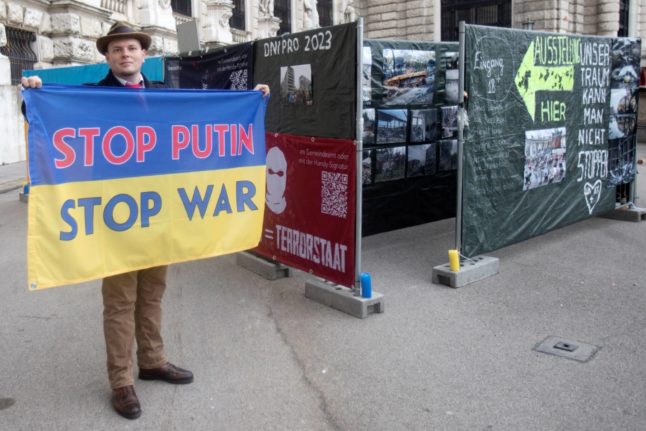With all the conflict in the world, you might be wondering whether that has impacted the view of Austrians on their constitutionally mandated neutrality.
The short answer would be: nein. At least not much.
READ ALSO: What’s the history behind Austria’s neutrality?
Polling by Der Standart newspaper shows that 69 per cent or more than two-thirds of Austrians remain convinced that staying neutral is the best way, while only 21 per cent think Austria should join a collective security agreement such as NATO.
This has reduced only slightly since the last poll in May 2022, shortly after Russia’s full-scale invasion of Ukraine, when 71 per cent of Austrians were in favour of neutrality, returning to a long term trend after a peak of 76 per cent in 2019.
According to policy researcher David Pfarrhofer, “we have been asking questions about neutrality for 20 years – and have been getting almost the same answers since 2003, so the mood is very stable.”
READ ALSO: What happens on Austria’s national day this year?
The pollsters found that most Austrians thought neutrality had caught up with the times, and changed depending on circumstances, as the country joined the European Union in 1995 after a controversial debate about whether this would compromise their neutrality.
Neutrality is more popular among Austrians over the age of fifty, and especially popular with supporters of the far right Freedom Party (FPÖ), 92 per cent of whom back staying out of NATO or other alliances.
The only party whose voters back ending neutrality is the Greens, currently in a government coalition, and even then it’s evenly split, with just 46 in favour and 43 against. Liberal NEOS voters are completely evenly split on the issue, while the supporters of all other parties want to remain neutral.
This is despite plenty of international criticism of “free-riding”, that Austrian security benefits from being surrounded by NATO states, but without actually paying for that security.
In fact Austria puts just 0.8 per cent of its GDP towards military spending, one of the lowest proportions in Europe, just ahead of also-neutral Ireland.
A neutral military?
However, the same poll found that Austrians do want to invest more in their military.
Perhaps surprisingly, it is exactly the voters who support neutrality who want to spend more, with older and FPÖ leaning voters in favour of increasing the budget, with Greens wanting to maintain current spending.
Overall 62 per cent of Austrians are in favour of increased military spending.
In fact critics have pointed to Austria’s refusal to provide arms to Ukraine while the country still buying large quantities of gas from Russia as proof that they are not as neutral as they claim and even may benefit Russia.



 Please whitelist us to continue reading.
Please whitelist us to continue reading.
Member comments